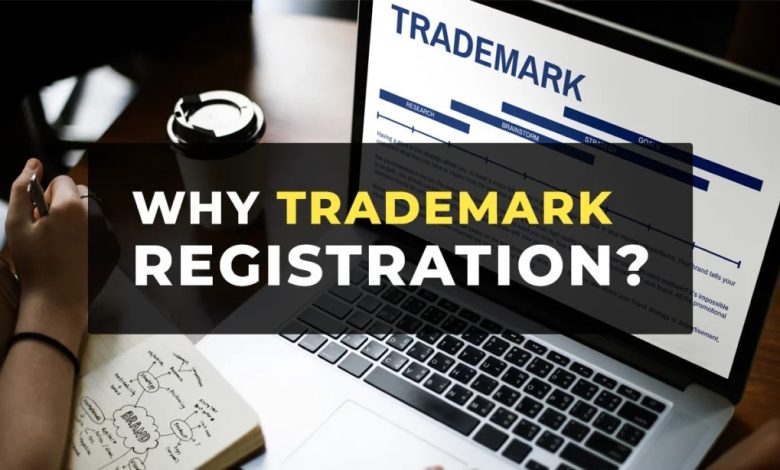Trademark Registration for Startups

Intellectual Property rights are exclusive rights given to the owners and creators to protect their creations. It consists of trademarks, patents, and designs. The rights protect the interests of the creators and organization. A trademark registration for startups is an intellectual property used for businesses to allow consumers to identify the source of goods and services.
They help industries in building brand reputation and goodwill in the marketplace. Trademarks can take different forms, logos, words, symbols, phrases, colors, sounds, and shapes. The registered trademark can distinguish the products and services from one person to another.
Brand Protection
Trademark helps in identifying the products and services of different businesses. The owner must use the trademark in the correct way and maintain their brand value. The protection for distinctive trademarks is higher than for less distinctive marks. One should avoid using less distinctive marks and inventive words for goods and services. The trademarks that lack distinctiveness are likely to confuse the general public.
A registered trademark grants the owner exclusive rights to use the brand name. It prevents others from selling the same goods and services. For example, if someone trademarked their clothing brand by naming it “Rasa Store” another business owner would likely use the same name for a restaurant.
ALSO READ: Trademark Registration in Surat
Protecting Start-up’s IP
Trademark Registration for Start-up’s means protecting a trademark from counterfeiting and infringement. The Trademark Act, of 1999 provides protection to a registered trademark owner against any damage caused by another party. The process includes completing an application form with the Trademark Registry.
Any person claiming to be the proprietor of a trademark used, who wants to register it, shall apply in writing to the registrar. Every application shall be filed by paying fees for different classes of goods and services. In the case of a refusal of an application, the registrar shall mention in writing the grounds for refusal of acceptance.
The registered logo and name provide an owner exclusive right to use the trademark in India. If a brand is infringed, the trademark owner may take legal action and recover damages. The trademark owner can file a suit against the person who uses the trademark without permission. The court provided remedies such as a temporary injunction, an account of profits, damages, and the amount of legal proceedings for trademark infringement.
The rights conferred by trademark registration include the exclusive right to use the trademark in relation to the goods and services for which it is registered, and to license those rights to others. The trademark registration grants prima facie evidence of validity and ownership. It also gives the right to prevent others from using a similar trademark that is likely to cause confusion among consumers.
Entrepreneurs must focus on developing a business strategy to make better decisions for long-term success. IP protection serves as an advantage to a startup. Every founder and creator must sign an IP assignment agreement to ensure that all rights are protected. This facilitates startups to attract investors and venture capitalists in the future.
New businesses need strong IP portfolios to achieve success in the market. This method shows the company’s IP protection while saving costs to work effectively. Startups need to focus on product management and innovation technologies.
The right process of running a startup can encourage employees to work on innovative ideas. IP in startups ensures better product development, marketing, Licensing, and Advertising. The government also started a Scheme to help Start-Ups with Intellectual Property Protection (SIPP). The scheme protects IP rights and provides legal assistance to founders in filing and processing of patent, design, or trademark applications.
Startups get trademark, patent and design services by paying statutory fees. The scheme also educates people about IP rights and helps them purchase IPRs to safeguard innovative technologies in startups.
Trademark Registration for Startups
Today highly competitive startups and small businesses need strong brand visibility. One of the essential tools to build and maintain a brand reputation is trademark registration. Anyone who is involved in trade or business and intends to engage in trade or business may apply for the registration of a trademark in India. This includes individuals, partnerships, companies, and other business enterprises.
Trademark registration for startups and small businesses helps in protecting their brand for long-term success. It strengthens the brand’s identity and makes it distinctive. Registered trademarks increase the brand’s value and attract potential consumers.
The Trademark Registration process involves the following steps:
- Trademark Search – Conduct a search to get a unique trademark
- Trademark Class – Select desired class for your trademark from different goods and services.
- Application Filing – Filing a trademark application with Trade Marks Registry using Form ™-A
- Examination by Trademark Office – Trademark application must be examined by the Trademarks Office. If the application meets all requirements, it will be accepted in the Trademarks journal.
- Addressing Oppositions – If a trademark is opposed by any person, an applicant can respond to the opposition for registration.
- Trademark Registration – Once registered, the applicant will receive a certificate of registration.
Plead Masters: Legal Resources and Legal Assistance [https://www.pleadmasters.com/]
Start-ups can get expert advice and support from local trademark attorneys and legal firms that specialize in intellectual property. Law Firms like Plead Masters offer resources and assistance with trademark-related queries. Secure your brand’s future now.
If you have issues or need assistance with trademark registration, contact us for a free consultation. Sign up for our newsletter to receive additional updates and expert advice on securing your business.




